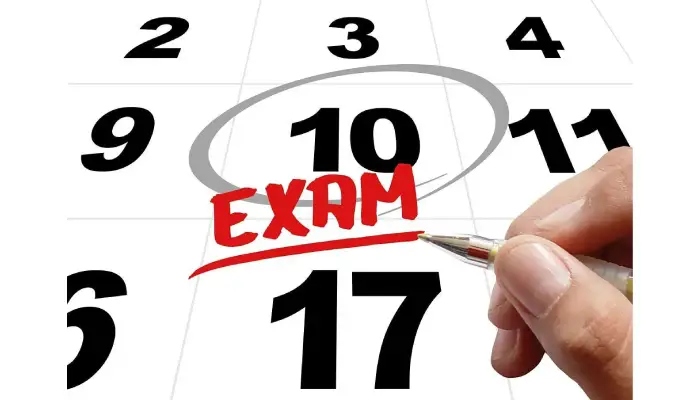The NASCLA (National Association of State Contractors Licensing Agencies) exam is a significant hurdle for aspiring contractors. Since passing this exam is crucial for obtaining a contractor’s license in multiple states, candidates often feel intense pressure. Exam anxiety can hinder performance, making it essential to prepare effectively. One of the most efficient ways to alleviate stress and improve readiness is through a NASCLA practice test. This article explores how practice tests help reduce exam anxiety while enhancing performance and confidence.
Understanding Exam Anxiety
Exam anxiety is a common issue that affects many test-takers. It can manifest in various ways, including:
- Physical Symptoms: Sweating, rapid heartbeat, nausea, and headaches.
- Cognitive Symptoms: Difficulty concentrating, blanking out on answers, and negative thoughts.
- Emotional Symptoms: Fear of failure, stress, and feelings of helplessness.
These symptoms can significantly impact a candidate’s ability to recall information and perform well. However, structured preparation using NASCLA practice test can be a game-changer in overcoming these challenges.

The Role of NASCLA Practice Tests in Reducing Anxiety
Familiarization with Exam Format
One of the primary reasons candidates feel anxious about the NASCLA exam is the uncertainty surrounding its format. The exam consists of 115 multiple-choice questions covering topics such as:
- Estimating and bidding
- Project management
- Safety regulations
- Contract requirements
- Business and financial management
Taking a NASCLA practice test allows candidates to become familiar with the question format and subject matter. When test-takers know what to expect, they feel more confident and less stressed on exam day.
Identifying Strengths and Weaknesses
A NASCLA practice test provides insight into areas where a candidate excels and where improvement is needed. By analyzing practice test results, candidates can:
- Focus on weak topics
- Allocate study time effectively
- Reinforce strong areas to maximize overall performance
When candidates see improvement over time, their confidence increases, reducing exam-related stress.
Enhancing Time Management Skills
The NASCLA exam is timed, and candidates must complete it within 5 hours and 30 minutes. Poor time management can lead to rushing through questions or leaving them unanswered. Taking NASCLA practice tests under timed conditions helps candidates:
- Develop pacing strategies
- Learn how to allocate time per question
- Avoid running out of time during the real exam
Practicing under real exam conditions ensures candidates are prepared to manage their time efficiently, reducing anxiety during the actual test.
Reinforcing Memory Retention
Repetition is a key factor in retaining information. When candidates regularly take NASCLA practice tests, they reinforce their understanding of concepts. Studies show that active recall (testing oneself) is more effective than passive study methods such as rereading textbooks or highlighting notes.
By consistently engaging with practice questions, candidates:
- Strengthen their knowledge retention
- Improve recall speed
- Feel more confident in their ability to answer questions correctly
Building Exam-Taking Confidence
One of the major causes of exam anxiety is self-doubt. Many candidates fear failure due to a lack of confidence in their preparation. Taking multiple NASCLA practice tests helps build confidence by:
- Showing tangible improvement over time
- Familiarizing candidates with the testing environment
- Reducing fear of the unknown
As candidates become more comfortable with the material and exam structure, their anxiety diminishes, allowing them to perform at their best.
Learning Effective Test-Taking Strategies
Apart from knowledge, the right test-taking strategies can make a significant difference. NASCLA practice tests teach candidates how to:
- Eliminate incorrect answer choices
- Approach complex questions strategically
- Manage stress when encountering difficult questions
These strategies help candidates remain calm and focused during the real exam, preventing anxiety from negatively impacting their performance.
Creating a Realistic Exam Simulation
Many candidates experience anxiety because they fear the actual exam environment. The best way to combat this fear is through realistic practice tests. Simulating the exam experience includes:
- Taking the test in a quiet setting
- Using a timer
- Avoiding external distractions
By mimicking real test conditions, candidates can acclimate to the environment, making the actual exam feel less intimidating.
Additional Tips for Reducing Exam Anxiety
In addition to NASCLA practice tests, candidates can incorporate the following techniques to further reduce anxiety:
Develop a Study Schedule
Creating a structured study plan prevents last-minute cramming, which often increases anxiety. Allocate time each week for:
- Reviewing study materials
- Taking practice tests
- Analyzing mistakes and improving weak areas
Practice Relaxation Techniques
Managing stress effectively is crucial for reducing anxiety. Techniques such as deep breathing, meditation, and exercise can help calm nerves before and during the exam.
Get Adequate Rest
Lack of sleep can impair cognitive function and increase stress. Ensure you get at least 7-8 hours of sleep before the exam to stay mentally sharp.
Maintain a Healthy Diet
Eating brain-boosting foods such as nuts, fish, and leafy greens can improve focus and memory retention. Avoid excessive caffeine or sugar, which can increase nervousness.
Stay Positive
A positive mindset can significantly impact performance. Instead of focusing on fear, visualize success and remind yourself of the preparation you’ve done.
Conclusion
Exam anxiety is a common struggle among NASCLA candidates, but it doesn’t have to hinder success. A NASCLA practice test is a powerful tool that familiarizes candidates with the exam format, identifies weaknesses, improves time management, reinforces memory retention, and builds confidence. By incorporating realistic practice tests into their study routine, candidates can reduce anxiety and increase their chances of passing the NASCLA exam with ease.
By staying disciplined, using effective test-taking strategies, and maintaining a positive mindset, candidates can approach the exam feeling prepared and confident.

Marian Shields, a dynamic marketing expert, orchestrates brand narratives with finesse and insight. With a keen understanding of consumer behavior and market dynamics, Marian navigates the ever-changing landscape of marketing strategy, crafting compelling campaigns that resonate with audiences worldwide. Through her strategic prowess and creative vision, she helps businesses of all sizes unlock their full potential and achieve tangible results in the competitive marketplace.





